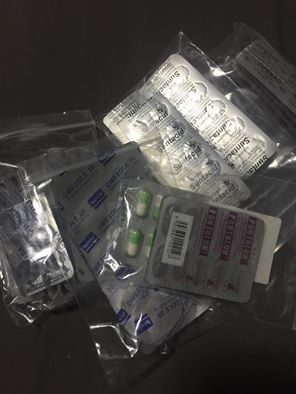Facebook user Catrina Wong claimed that she went to the polyclinic on 6 May because she was under intense pain, and that the polyclinic sent her to the Accident and Emergency (A&E) department of the Singapore General Hospital (SGH). Since then, she went to several other hospitals and received unsatisfactory medical care for her condition at the public ones.
A doctor who first saw Catrina at SGH told her that her pain may not be due to a gynecological issue but could be more bowel related, and scheduled her for an ultrasound test 2 months later.
Her pain however returned the following day. She went again to SGH A&E, but was told that she would have to wait 9 hours to see the doctor. Unwilling to wait, she went to a private hospital for a ultrasound test. The test confirmed that there was a growth near her left ovary.
She asked the private hospital to refer her to KK Women’s and Children’s Hospital (KKH), as she wanted th enjoy Medishield. She was admitted at KKH and was put under a pain management programme, but was told that an MRI could only be done several days later.
When Catrina’s condition worsened, KKH ordered an emergency MRI and confirmed that her pain was caused by Endometriosis, a gynecological condition resulting from the growth of tissue outside the womb that causes pain in the pelvic area. The MRI further revealed that she had to go for a proper surgery instead of a pin-hole one.
KKH however postponed her surgery to 23 May as there was no availability of operating theatres in the hospital till then. The hospital sent her back home with another bag full of painkillers.
Catrina has several questions for Singapore’s public health system:
“1. If a patient comes in via ambulance complaining of pain, how could A&E make them wait 9hrs before seeing the related Doctor? In such a big hospital and high patient flow, how is it possible to have only ONE doctor on call for emergency cases? And at KKH, operation for such cases only happens on Monday?
2. If a patient were given high doses of painkiller by injection or medication, how could they expect the patient to determine the intensity of the pain in emergency cases?
3. What happens if I delay 2mth later to get my ultrasound at SGH? What if my cyst rupture due to the size and went undetected?”
Catrina said that public hospitals should not provide lesser priority to subsidised patients, just because they are not paying full medical fees. She said that the public health system should not treat such patient’s life lightly by providing sub-standard treatment and sending them back with a big bag full of painkillers.
“I try to survive on that 2 bags of painkillers and not rupture my cyst before my operation 2 weeks later,” Catrina said.

